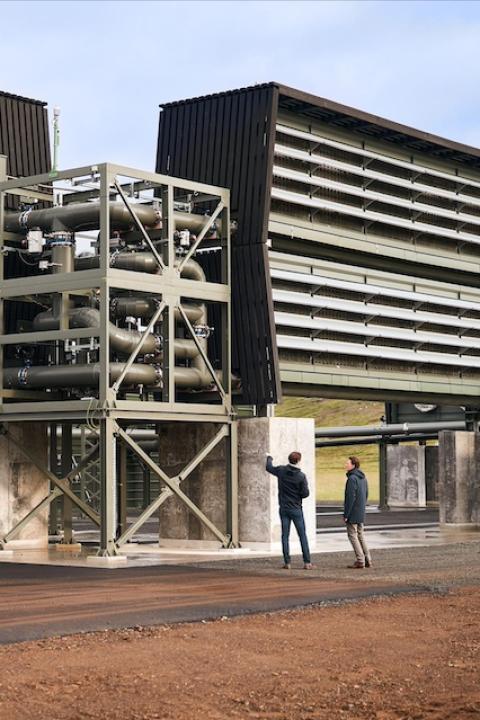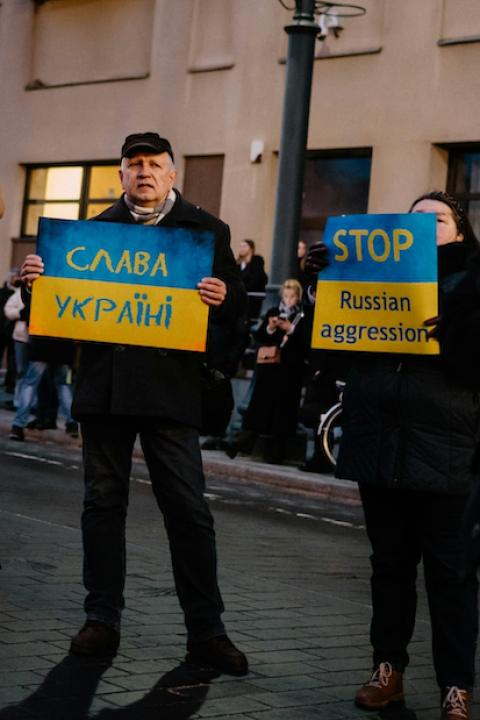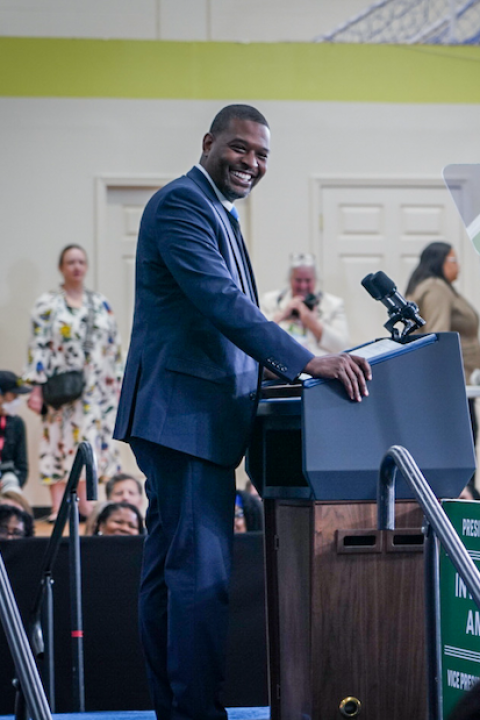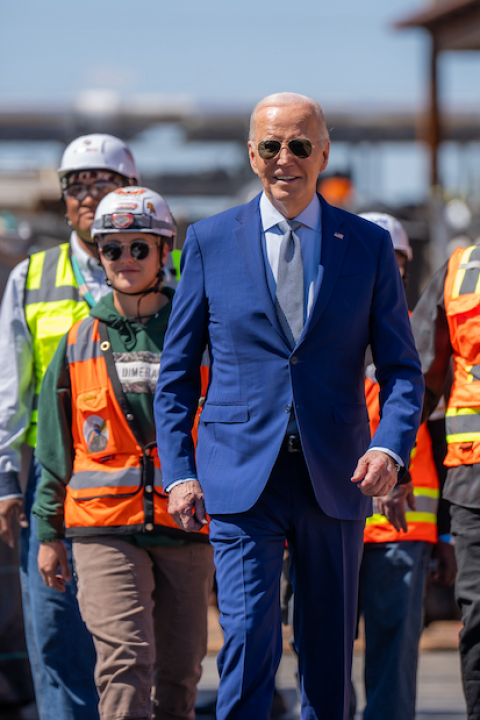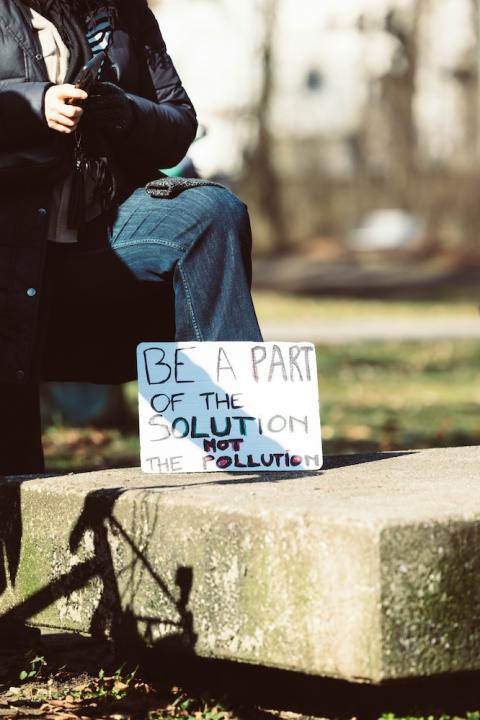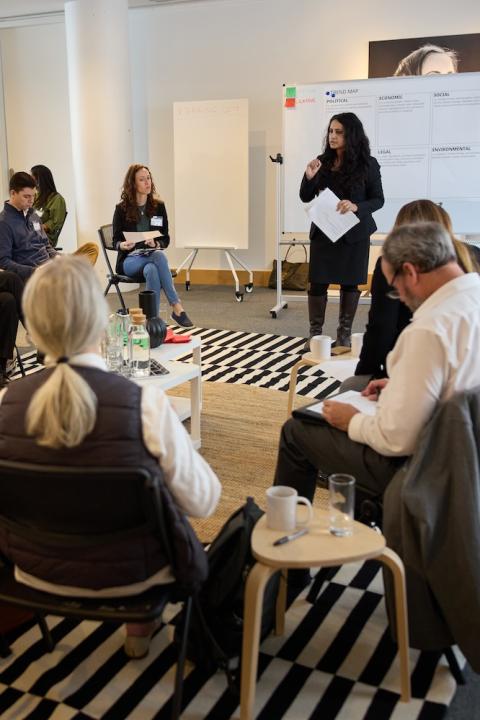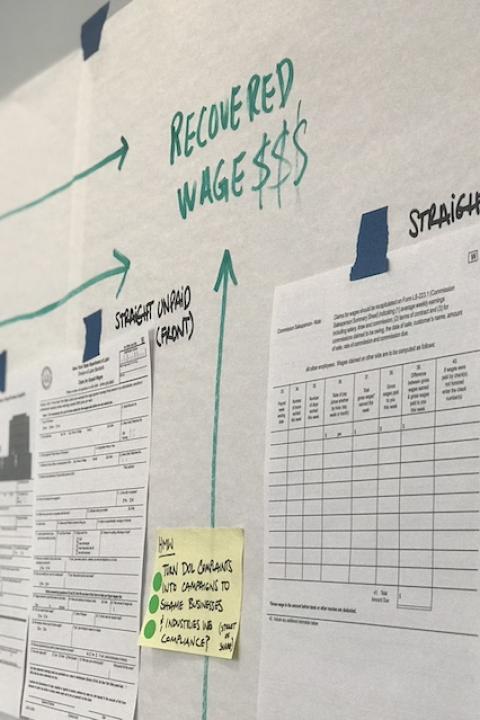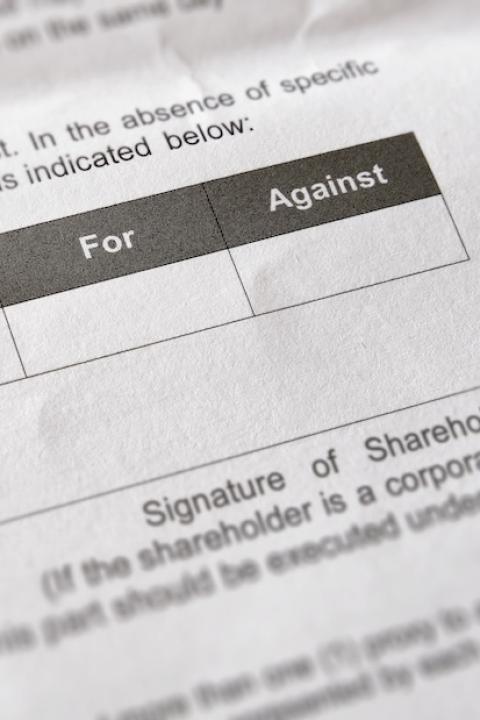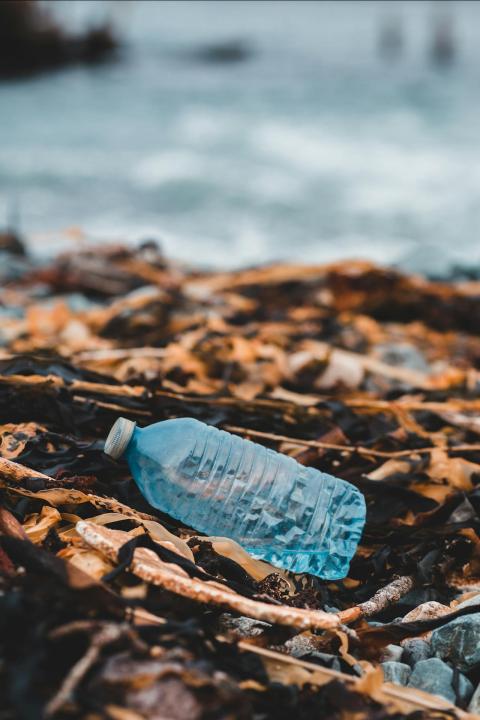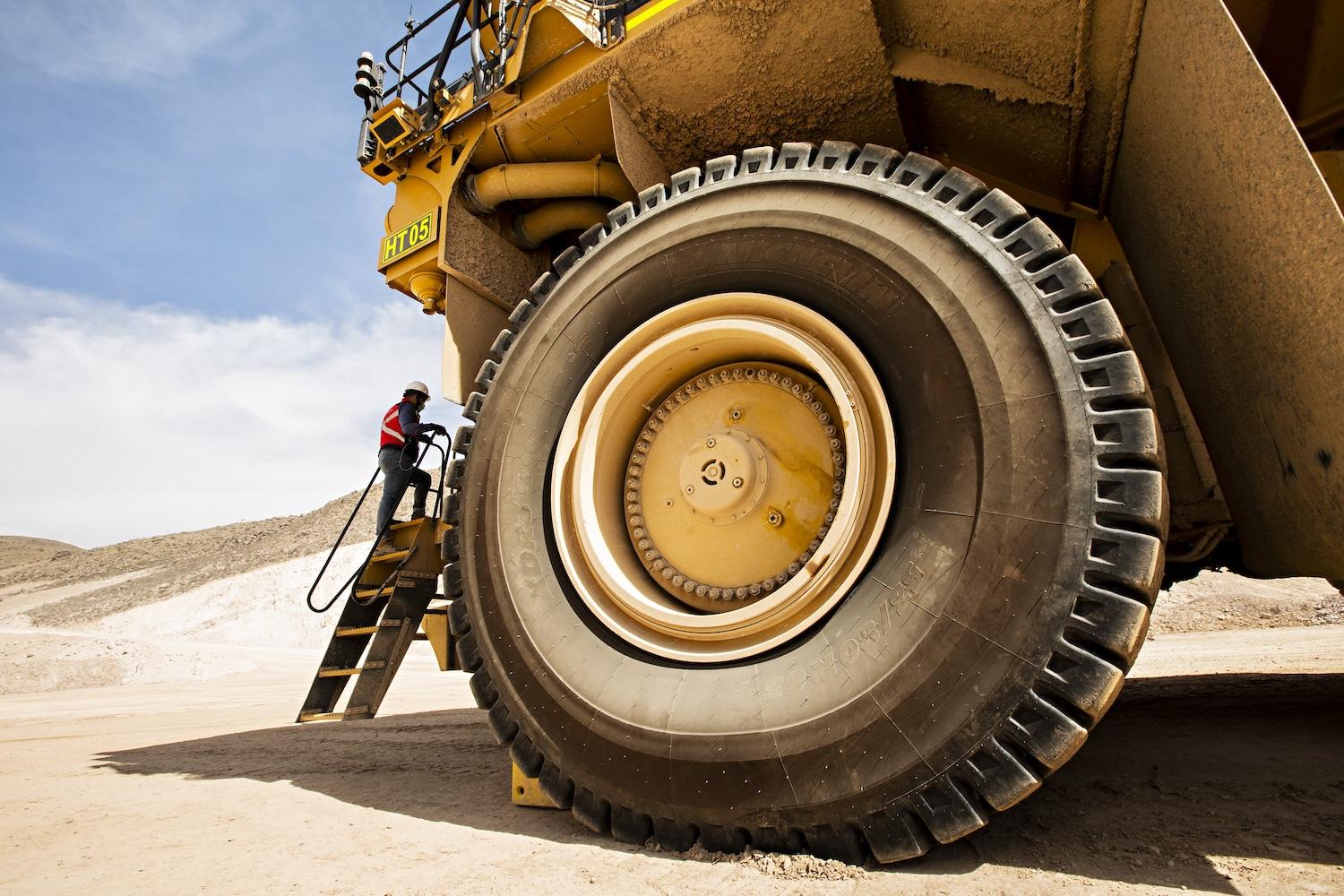
A worker at the Quellaveco copper mine in Peru. (Image: Anglo American Plc/Flickr)
This story is part of an investigative solutions journalism series exploring the hidden human rights costs of the low-carbon transition and how local stakeholders, governments and the mining sector can respond. Follow along with the series here.
As the energy transition progresses, some are concerned about the effect it might have on human rights. Minerals like cobalt, nickel and lithium are vital to renewable energy and battery technologies. However, the mining processes that extract these minerals have a serious human rights problem.
Documented issues at mines range from killings and sexual abuse to land degradation and lack of free, prior and informed consent, mostly stemming from disputes between mining companies and the communities near mine sites.
The issue is not isolated to the mining sector. Similar concerns have been raised in agriculture, oil and gas, and forestry, but the severity and frequency of allegations from mining has prompted calls for change.
Human rights due diligence reporting requires companies in all sectors to examine their supply chains to see if any business relationships are contributing to human rights abuses.
How does human rights due diligence work?
Human rights due diligence practices are based on the U.N. Guiding Principles on Business and Human Rights, released in 2011. The principles outline the state duty, as well as the corporate duty, to protect human rights.
To simplify things, let’s suppose you run a successful lemonade stand. Doing your human rights due diligence would mean that you have to run a check on each of your suppliers. What store do you buy your lemons from? Which lemon distributor does the store use? Which hands do the lemons pass through as they move from farm to store? Finally, which farms are growing your lemons?
It would be your duty to engage with all of these suppliers and conduct risk-based assessments to determine the likelihood and severity of adverse impacts. Where the likelihood and severity are high, further investigation would be required. Obviously, this could result in a massive workload, and this is just for a hypothetical lemonade stand.
International businesses with much more extensive and complex supply chains will be forced to explore hundreds or thousands of companies. However, it isn’t expected that companies will investigate every single case. Rather, companies are expected to prioritize cases and work through the highest-priority cases first, before moving on to lower-priority cases if time and resources allow for it.
For minerals, the supply chains under scrutiny track back all the way to the source: mines and mining companies. Where human rights abuses are found, companies must take steps to try to prevent and mitigate the adverse impacts. If the steps yield no results, or the abuses are severe, companies are expected to disengage from that business relationship.
Mining companies are also expected to conduct their own due diligence assessments to assess not only their supply chains, but also the various ways in which their activities could contribute to human rights abuses by engaging with employees, community members, and other relevant stakeholders.
Why does human rights due diligence matter?
Global supply chains tend to conceal human rights abuses from public knowledge, and human rights due diligence assessments are an attempt to ensure that business activities are not contributing to worsened human conditions.
The human rights due diligence process is not a guarantee that there are no human rights abuses in supply chains, but rather it is a mechanism to ensure that human rights issues are managed responsibly each step of the way. If abuses are found, due diligence provides confidence that the appropriate steps will be taken to mitigate and prevent future problems.
While still largely a voluntary initiative, momentum is picking up that would make due diligence processes mandatory for large businesses, increasing the scrutiny of global supply chains.
Human rights due diligence is currently a legal requirement for large companies in Germany, France and Norway. The European Union is actively negotiating details on the Corporate Sustainability Due Diligence Directive (CSDDD), which would bring due diligence requirements to the whole of Europe, affecting some 16,000 companies.
Global practices and standard procedure for due diligence assessments is provided by the OECD Due Diligence Guidance, the most widely recognized set of standards for human rights due diligence.
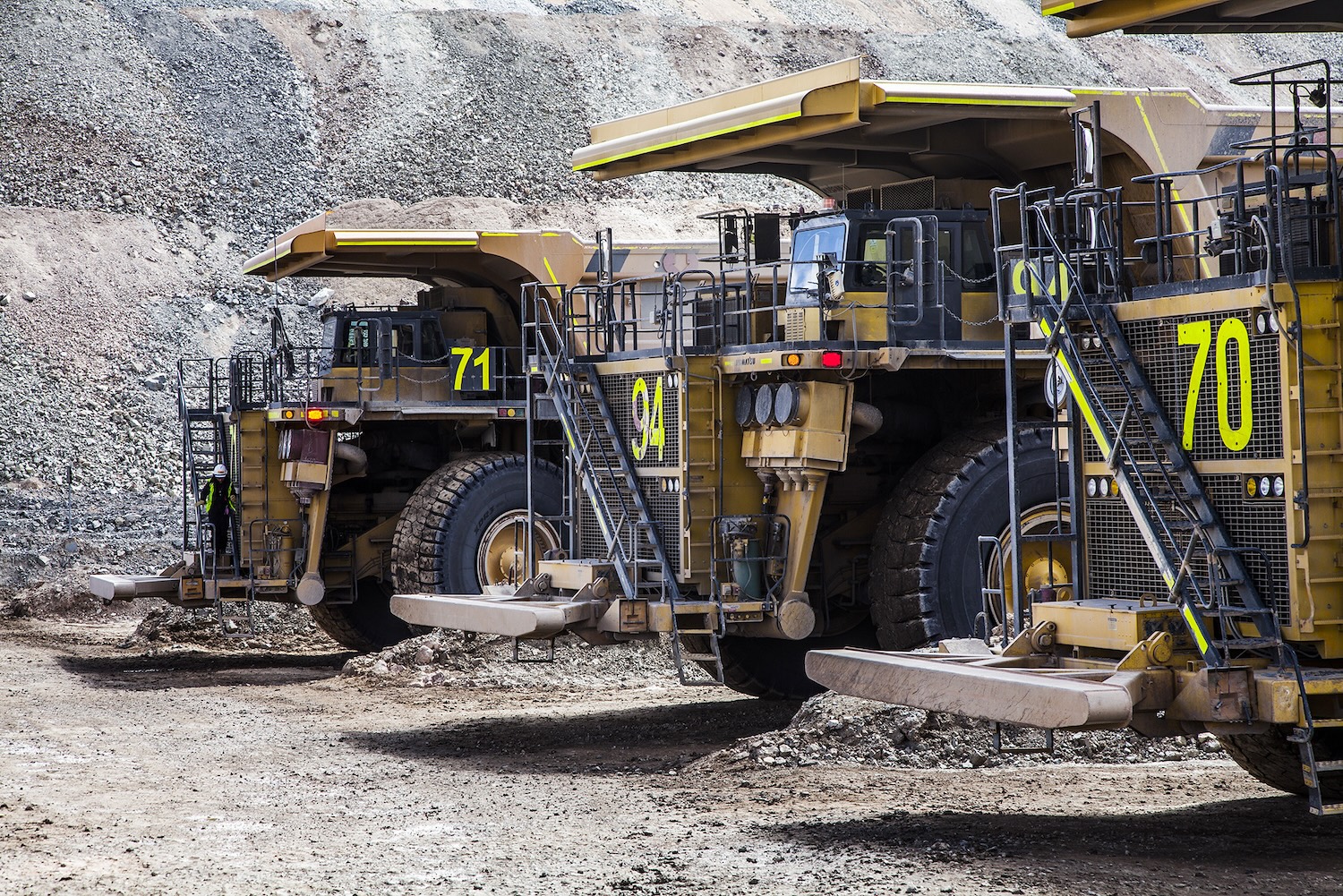
How can businesses responsibly align their supply chains?
The Responsible Minerals Initiative, part of the Responsible Business Alliance, has developed a way for businesses to minimize the possibility that their supply chains contribute to human rights abuses. It’s called the Responsible Minerals Assurance Process (RMAP), and it is rooted in the human rights due diligence process.
“The assessments are focused at the ‘pinch points,’ so typically the mineral processing part of the supply chain,” says Jennifer Peyser, executive director of the Responsible Minerals Initiative. “We deploy accredited third-party assessors to apply our standards at those facilities, and then we publish a conformant list of facilities that meet those standards.”
Peyser likes to use a bow tie analogy. On the left side of the proverbial bow tie, you have all of the mines and mineral extraction points, and on the right side are all the businesses selling the end products. These represent a massive number of facilities. However, after minerals are mined, they go to a smelter or refinery to be processed before being sent down the supply chain to manufacturers. There are far fewer smelters than there are mines, and the smelters represent the small knot in the center of the bow tie, or the “pinch point.”
“When a smelter is assessed, what we’re saying is that its management systems as a facility meet the expectations of the OECD Due Diligence Guidance,” Peyser explains. “It’s not a guarantee or certified sticker on every mineral that leaves this facility, but rather an acknowledgement that the facility is managing risks responsibly.”
Much like the human rights due diligence process, RMAP is not a guarantee that supply chain processes are free from human rights abuses, but rather an investigation to assure that responsible governance mechanisms are in place to deal with human rights claims should they arise.
“The whole concept of due diligence is not perfection. You might find risks and problems, but it’s more about what you do if and when you find those problems,” Peyser says. “Our assessments are such that if a smelter finds problems, they have demonstrated that they have systems in place to appropriately manage those problems.”
The Responsible Minerals Initiative publishes a list of smelters that meet the RMAP standards. Currently, 310 facilities appear on the conformant list.
“Downstream companies can consult RMAP standards and conformant lists as they make their supply chain decisions,” Peyser says. With growing consumer expectations for responsible business practices and incoming legislation that will require due diligence assessments, businesses can use the RMAP to support responsible mineral sourcing in their supply chains.
How does human rights due diligence affect the mining sector?
Representatives for the International Council on Mining and Metals, a member organization that represents about 30 percent of the global mining industry, told TriplePundit it fully recognizes the need for change in the mining sector, and that work remains across key challenges including human rights. The council says it proposes its own measures to improve the sustainability performance of mining companies and also welcomes the initiatives from other concerned organizations.
The council published its first human rights due diligence guidance in 2012, which was most recently updated earlier this year. The guidance is tailored to help mining companies conduct human rights due diligence assessments with industry-specific language and guidance. The council also provides training to member organizations to help them implement the guidance.
“The human rights due diligence process really takes the cover off of the potential and actual issues right across the supply chain,” says Danielle Martin, director of social performance at the council. “Human rights due diligence implements the structure for good risk management and better decision-making.”
While the primary goal of conducting human rights due diligence assessments is to prevent and mitigate human rights abuses, there is also a business case to be made for implementing the process across supply chains.
“Having those good practices in place avoids potential operational disruptions and legal action,” Martin says. “As well, investors and consumers are increasingly looking to companies that are better performing in these areas in which to invest their money. They want to be sure that businesses are reputable on human rights.”
Sustainability performance is an increasingly important driver for consumers and investors when selecting a product or business. Starting to conduct human rights due diligence assessments across business supply chains is not only a way to carve out a competitive advantage, but it also prepares businesses for the incoming wave of due diligence regulations.
The International Council on Mining and Metals says it aims to move the mining sector in a more sustainable direction. Its member companies must adhere to a set of 10 Mining Principles, which promote responsible conduct and sustainable practices. One of the principles is human rights.
Member companies are required to report on their performance for each of the Mining Principles. However, there is less clarity on the consequences for companies that do not adhere to the principles. Some members of the council, like Glencore, are still the subject of severe human rights allegations.
Human rights due diligence in practice
The Australian mining company South32 provides an example of what companies can do if and when they discover human rights issues in their supply chains. The company identified issues with its inbound and outbound shipping practices through a 2023 human rights due diligence assessment. While it does not own any ships directly, it conducted due diligence on the vessels that load or discharge cargo at South32-operated ports.
Of the 297 vessels that were vetted in the previous fiscal year, 20 were subject to further investigation, and three were selected for a full modern slavery audit. After the audits, the use of two of those vessels was restricted due to "substandard labor and unsafe work conditions.”
While the mining industry still has a long way to go, human rights due diligence requires an intimate examination of supply chains and pushes the needle toward better and more just practices as the demand for minerals grows and the energy transition accelerates.

Andrew Kaminsky is a freelance writer with no fixed location. He travels all corners of the globe learning about the different groups that call this planet home, seeing natural wonders, and sharing laughs with the people he finds along the way. An alum of the University of Winnipeg's International Development program, Andrew is particularly interested in international relations and sustainable development. In his spare time you are likely to find Andrew engaging in anything sport-related, or finding common ground with new friends over a craft beer.



